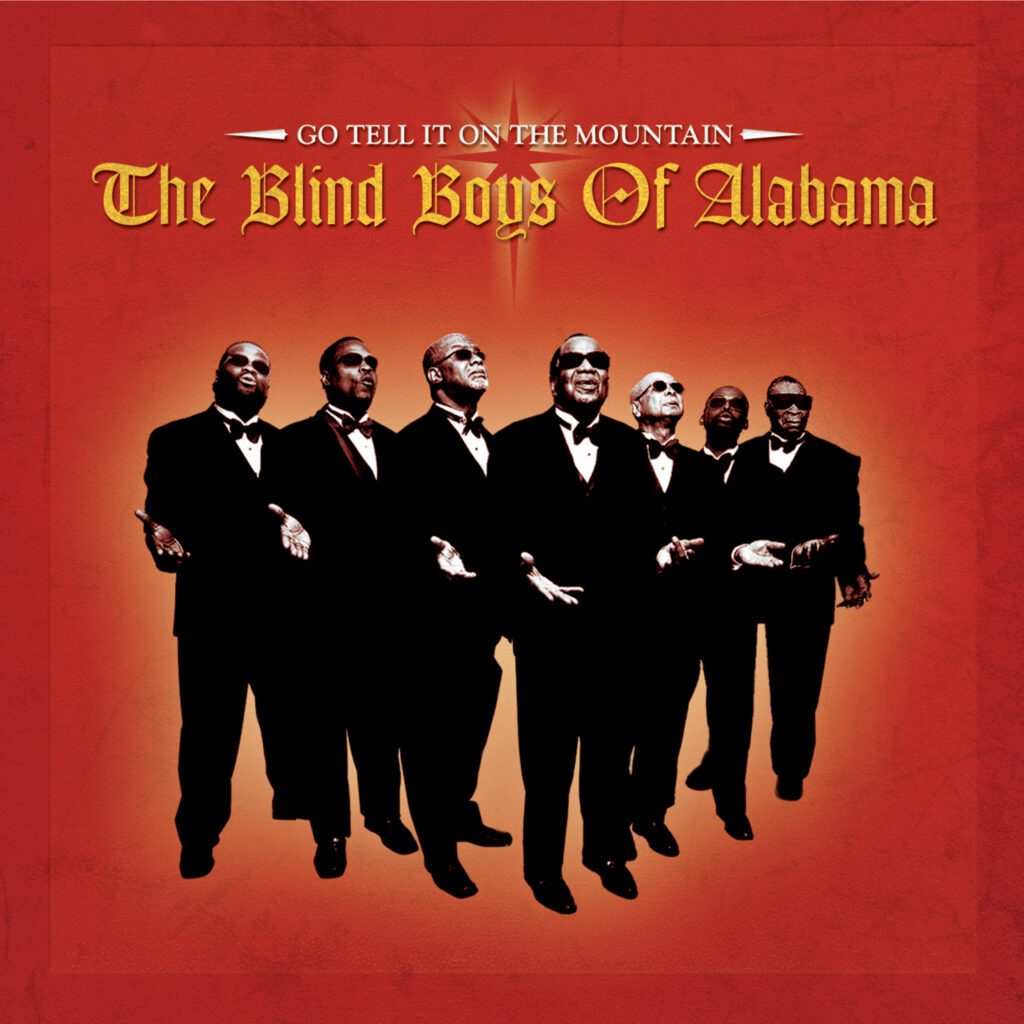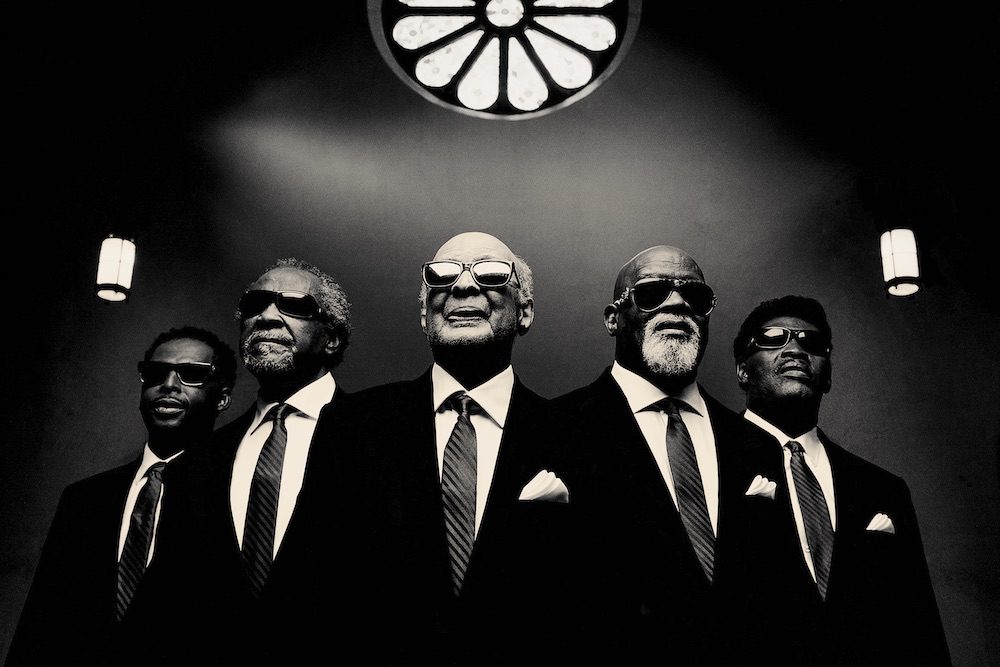
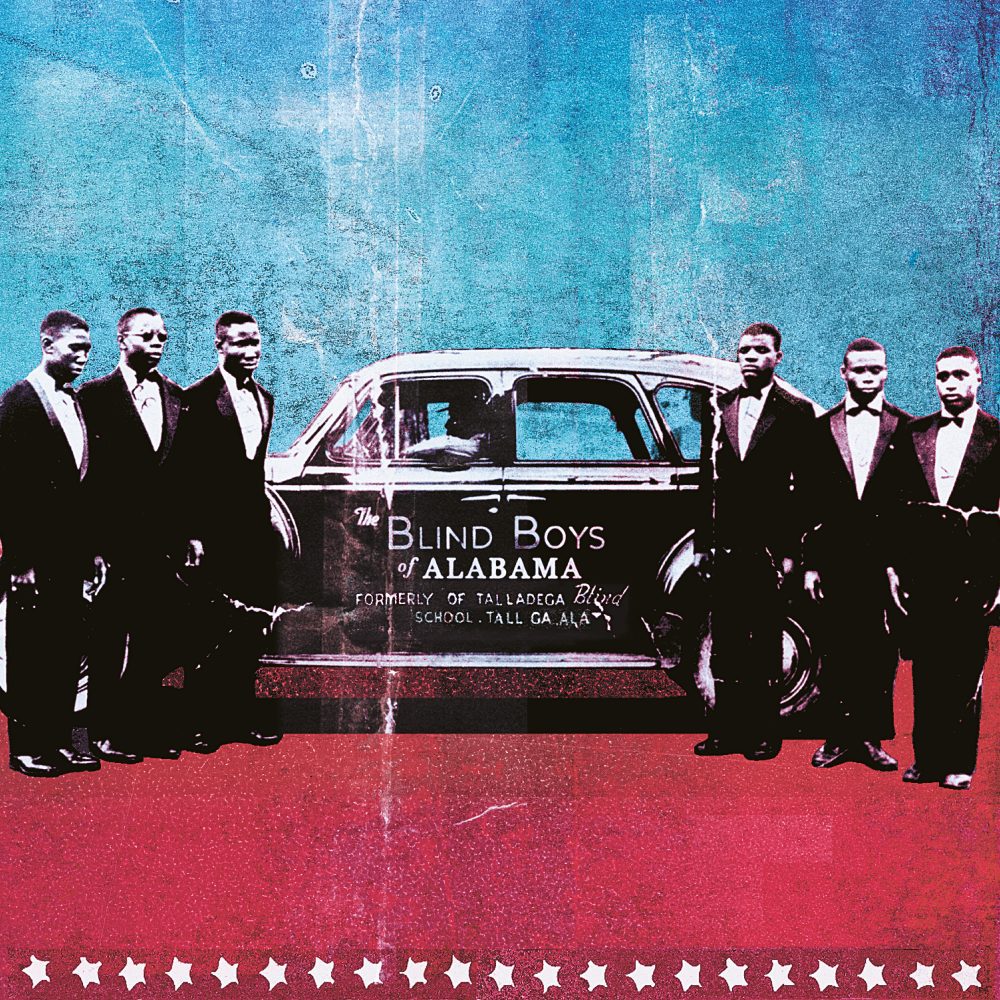
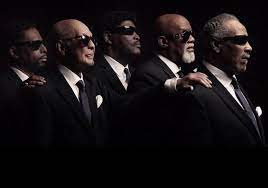
the Introduction
The blind boys originally known as Happyland Jubilee Singers,
came into the musical world of gospic in the 20th century, to become a pillar in the gospel genre. They continuously adapted the different types of musicality that was popular, but stayed true to their original ideas and message. Jimmy Carter one of the founding members of the blind boys of Alabama stated “When we got started we weren’t worried about fame, we didn’t care about that,” “All we wanted to do was get out of school and sing gospel music and touch people’s lives.” Carter and the other blind boys felt an obligation by God and their community to share their gifts to hopefully be able to bless those in need!
Jubilee Quartets
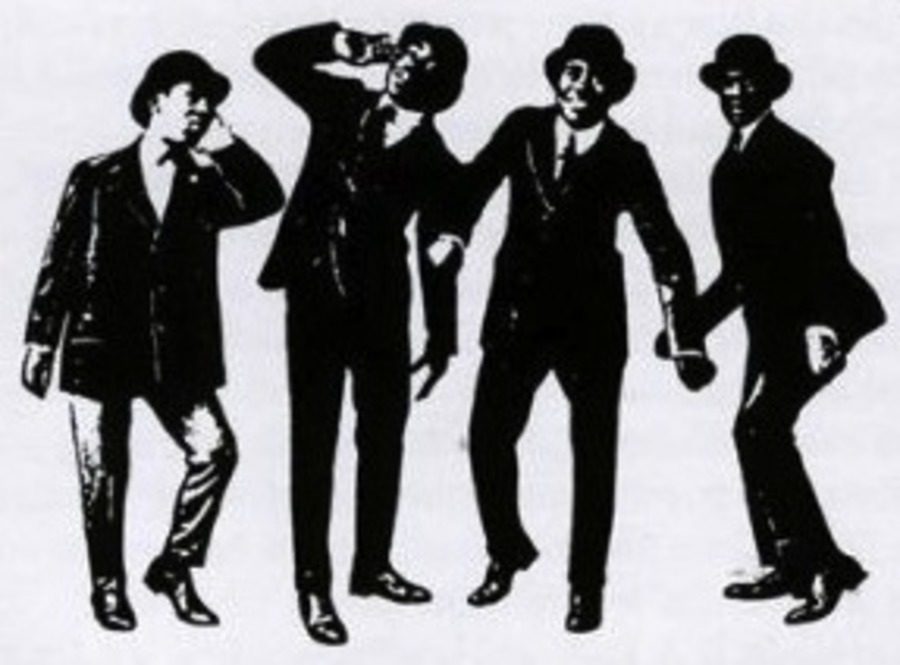
Their style of performing/ derived from. a special musical performing genre of the name Jubilee quartet quartets. The jubilee era was within the middle of the 18th century all the way through the early twentieth century. In African American culture the name quartet doesn’t just only stem from the number four, but it was looked at from the perspective of ‘How many voices will be present. ” The Jubilee Quartets originated in black musical choirs in the 1870’s to create funds to support black colleges and institutions on the brink of closure or bankruptcy. This specific style was composed of six to four black male and female singers performing various acapella songs. As a collective they were able to produce and perform formal arrangements in close four-part harmonies. From this type of performance major groups such as the Blind Boys of Alabama rose to fame in the 19th & 20th century. The Blind Boys naturally adapted to this style due to the number of group memebers as well as the styles connection to gospel music. Due to Jubliee Quartets popularity within the black community, white society saw grew to admire them. So theybegan to produce Quartets of their own.
Background/
Early Stage
The members who founded the group formally met in 1939 where they sang in their school choir. This just wasn’t any choir though, or any regular schools. This specific institution was called the Talladega School for the Blind in Alalamba But now it’s called the. Alabama Institute for Deaf and Blind. They began their musical journey in 1939, but didn’t begin to record until the late 40’s. The group originally consisted of six members. All the founding members of the group were in fact blind except one. Clarence Fountain the founder of the group who experienced visual impairment but not total blindness. Various blind boy members over the years weren’t even blind to in order to keep the group alive and hold on to the capacity to spread the word of God. When asked why this was a new frequent occurrence in the group, Fountain stated “ You never refuse a guy who can sing, drive and help out,” Fountain explained in 1992. The group over the years have featured numerous artists as members such as Jimmy Carter, Eric McKinney, George Scott, Caleb Butler, Johnny Fields, Joey Williams, Donald Dillion, and Aubrey Blount. Although the group consisted of many men, unfortunately no original members are alive today, but their the legacy continues with the current members. Jimmy Carter, Ben Moore, Ricky McKinnie and Paul Beasley and singer-guitarist Joey Williams
The members who founded the group formally met in 1939 where they sang in their school choir. This just wasn’t any choir though, or any regular schools. This specific institution was called the Talladega School for the Blind in Alalamba But now it’s called the. Alabama Institute for Deaf and Blind. They began their musical journey in 1939, but didn’t begin to record until the late 40’s. The group originally consisted of six members. All the founding members of the group were in fact blind except one. Clarence Fountain the founder of the group who experienced visual impairment but not total blindness. Various blind boy members over the years weren’t even blind to in order to keep the group alive and hold on to the capacity to spread the word of God. When asked why this was a new frequent occurrence in the group, Fountain stated
“ You never refuse a guy who can sing, drive and help out.” Fountain explained in 1992. The group over the years have featured numerous artists as members such as Jimmy Carter, Eric McKinney, George Scott, Caleb Butler, Johnny Fields, Joey Williams, Donald Dillion, and Aubrey Blount. Although the group consisted of many men, unfortunately no original members are alive today, but their the legacy continues with the current members. Jimmy Carter, Ben Moore, Ricky McKinnie and Paul Beasley and singer-guitarist Joey Williams
During the Fame/ Major Acomplishments
In the span of six decades the Blind Boys were able to create 60 albums. They have received four Gospel Music Association’s Dove Awards. Three of these awards were 1. Best Traditional Soul Gospel Album and 2. Song of the Year for a recording the created for traditional recreation of a song called “Free at Last” from their album called Down in New Orleans.
The Blind were given the opportunity multiple times o sing for various presidents within the White House. They have also received the Lifetime achievement award, and also over the years have acquired five Grammy’s and a total have been nominated for 10 grammy’s in total.
Artist Profiles
Clarence Fountain (1929–2018)
Fountain was raised in Selma Alabama born in 1929 in a very traditional black household. His family religiously went to church every sunday, his parents were active members in the church, and filled the house with love and normalcy. It wasn’t until Fountain began to lose his sight at two years old that his life changed forever. His parents enrolled him in Alabama’s Talladega Institute for the Deaf and Blind by the age of eight. There his teachers taught him how to properly read music in Braille, while participating in the boys choir at school. There he was inspired to get a group of boys together to begin their own separate singing group. Fountain was so determined to do all he could to achieve his overall goal. This goal was to simply praise God through the good and bad times. Fountain explained “I didn’t turn my back on the Lord,” he said on the NPR program “Morning Edition” in 2001. “I said I wanted to sing gospel music and I wanted to sing it for the Lord.”
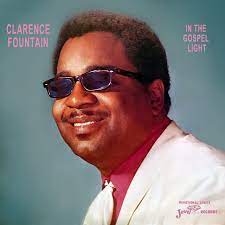
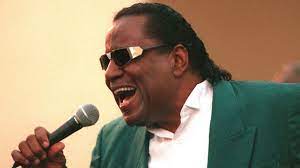
Eric “Ricky” McKinnie
Eric “Ricky” McKinnie Is an all time American drummer, singer , performer, and producer, who is most famous for singing with the Blind Boys. Born in Atlanta Georgia in the year 1952. McKinnie began his music career in the 1970’s when he first officially joined a group of the name Gospel Keynotes. After joining the group he created a gold record called “Jesus you’ve been good to me.” McKinnie soon after lost his sight completely to glaucoma in 1975. He continued his music career with his mother and brother and formed the Ricky McKinnie Singers in 1978. His group later was able to even produce their own radio show that still is on the air today ! The year 1989 Fountain discovered McKinnie’s talent and invited him to be the group’s drummer, a singer, and tour manager due to his producing skills. Mckinnie loved activism and giving back to his community and founded the Family and Friends Organization of Atlanta.
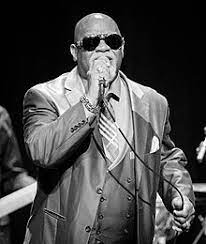
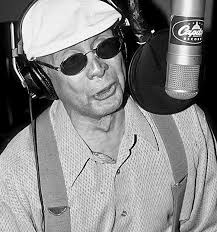
Jimmy Carter
Jimmy Carter was born in 1932 on February 11th in Birmingham Alabama. Now one of the oldest living members in the group and he was one of the founding members as well. The was labeled the Co-founder and “frontman” of the Blind Boys. When the group began he was too young to participate in tutoring with the other members, and officially joined after singing at Dixieland. Today Carter is a Grammy Lifetime Achievement Award winner, has received a National Heritage Fellowship and is in the Gospel Hall of Fame. Here’s a video of one of Carter’s most famous hits- I am with you Still
George Scott
George Scott was born in the year 1929, in Notasulga, Alabama. Unlike most of his fellow members of the group Scott was blind at birth. He was raised by his mother Hassie Lou Scott, who when he heard about the Talladega Institute for the Negro Deaf and Blind, she immediatly picked up and moved them so he could attend. Scott was the only member to shed some light on the school. He claimed “The school was almost like a prison. But they did teach us how to read music in braille”. Even though Scott didn’t go onto be a major star after preforming with the Blind Boys, it wouldn’t had been the five Blind Boys without him.
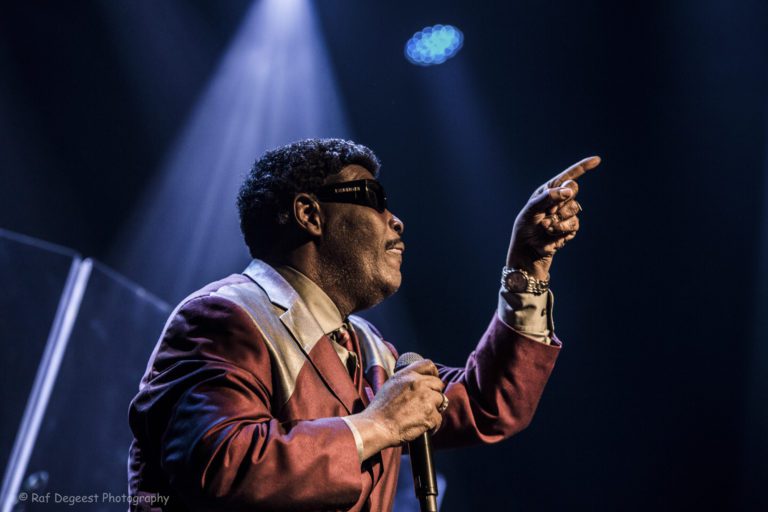
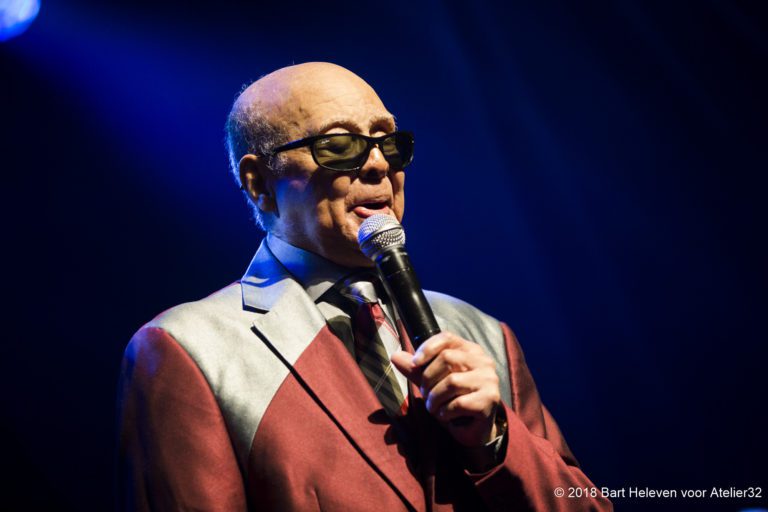
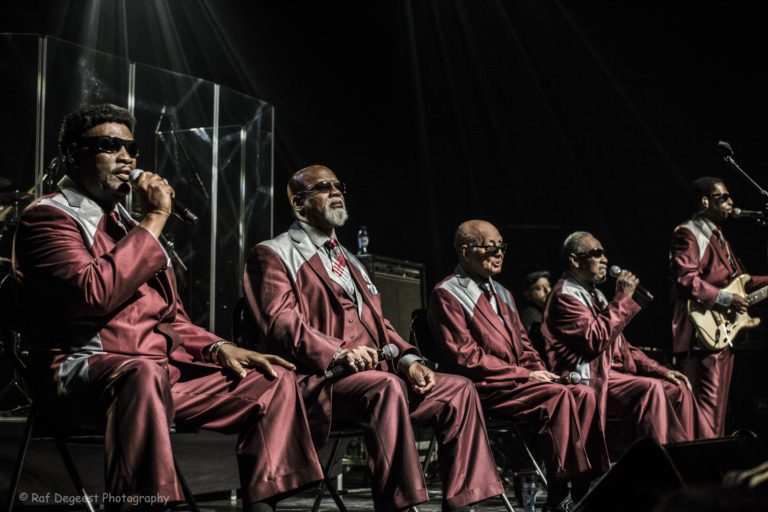
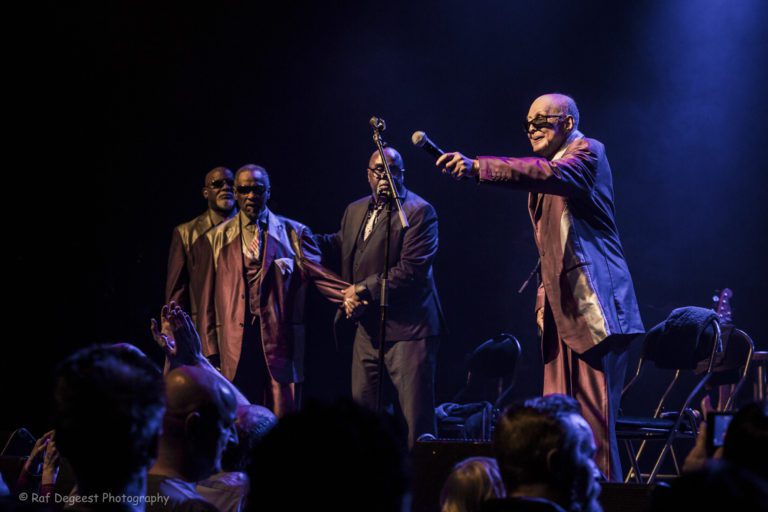
Conculsion
Within six decades, starting frm the very bottem of the musical charts, The Blind Boys were able to rise to fame. The men at a young age had a dream and they made it into a reality. Not looking at their blindness or sight imparments as a disability, but as a superpower, they used theyre circumstnaces to become legends of the music industry.
Sources
1. SFJAZZ.org | 5 Things to Know About the Blind Boys of Alabama. www.sfjazz.org/onthecorner/5-things-to-know-about-the-blind-boys-of-alabama. Accessed 5 Oct. 2022.
- Samaha, Eve. “The Blind Boys of Alabama Have a Vision.” The Provincetown Independent, 16 Sept. 2022, provincetownindependent.org/arts-minds/2022/08/17/the-blind-boys-of-alabama-have-a-vision.
- Catlin, R. (2017, March 17). After 75 years of touring, The blind boys of alabama are still reaping blessings. The Washington Post. Retrieved October 5, 2022, from https://www.washingtonpost.com/entertainment/music/after-75-years-of-touring-the-blind-boys-of-alabama-are-still-reaping-blessings/2017/03/15/76e2eba2-0809-11e7-a15f-a58d4a988474_story.html
- The blind boys of alabama biography, Songs, & Albums. AllMusic. (n.d.). Retrieved October 5, 2022, from https://www.allmusic.com/artist/the-blind-boys-of-alabama-mn0000059468/biography
- “The Blind Boys of Alabama Biography, Songs, & Albums.” AllMusic, https://www.allmusic.com/artist/the-blind-boys-of-alabama-mn0000059468/biography.
- “The Blind Boys of Alabama Biography, Songs, & Albums.” AllMusic, https://www.allmusic.com/artist/the-blind-bo
7. http://www.blindboys.com/about
8. https://www.arts.gov/honors/heritage/clarence-fountain-blind-boys
9. https://www.thehistorymakers.org/biography/eric-ricky-mckinnie-41

